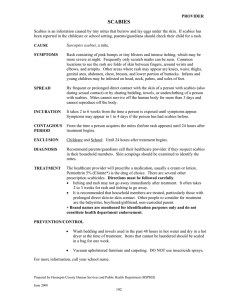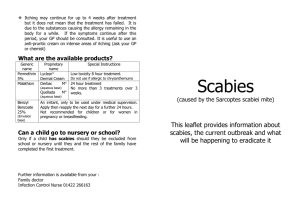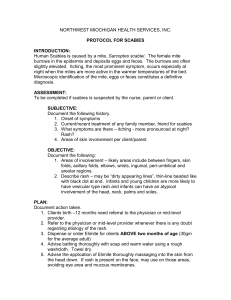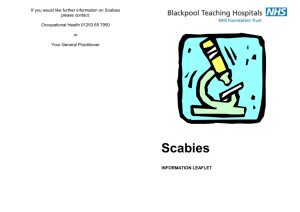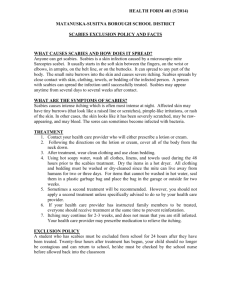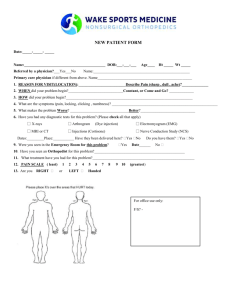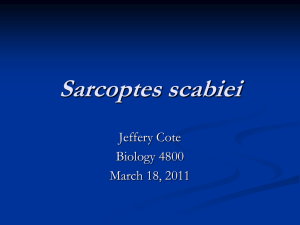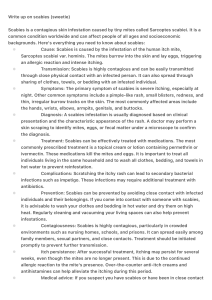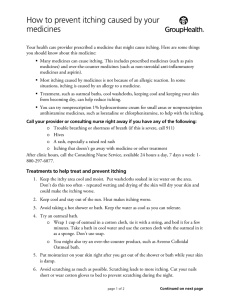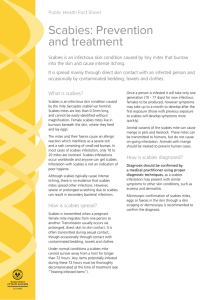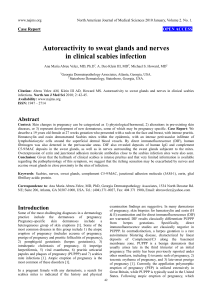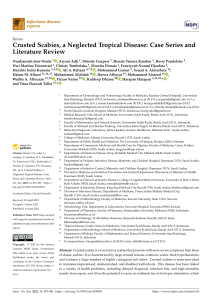INSTRUCTION SHEET: SCABIES University of North Carolina Wilmington Abrons Student Health Center
advertisement
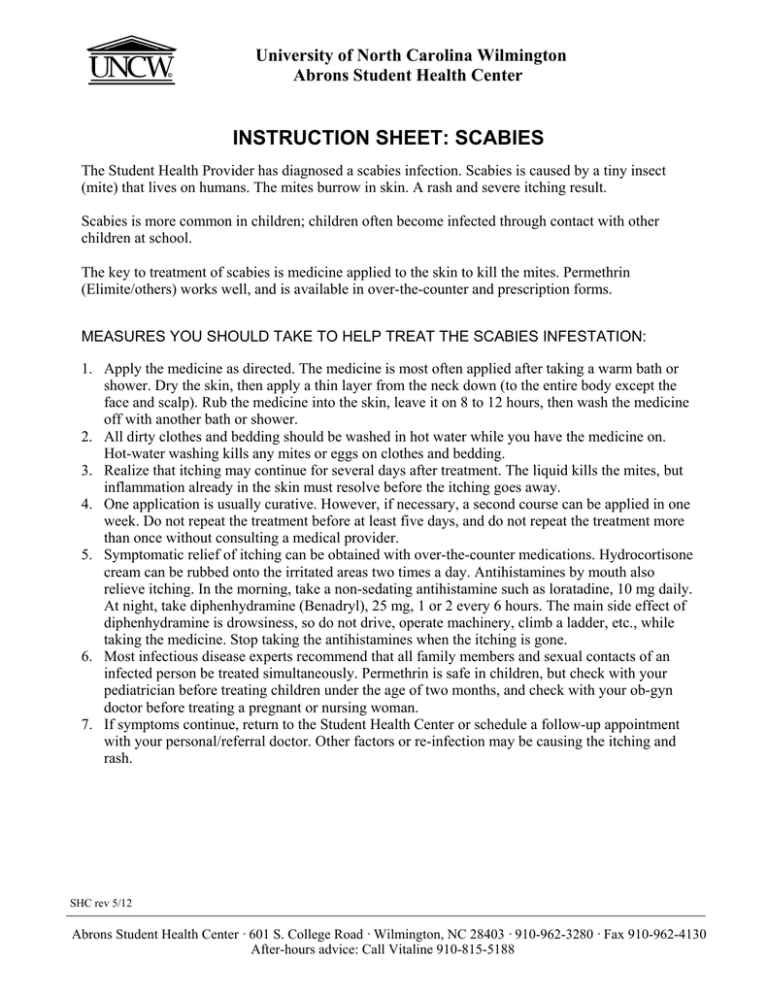
University of North Carolina Wilmington Abrons Student Health Center INSTRUCTION SHEET: SCABIES The Student Health Provider has diagnosed a scabies infection. Scabies is caused by a tiny insect (mite) that lives on humans. The mites burrow in skin. A rash and severe itching result. Scabies is more common in children; children often become infected through contact with other children at school. The key to treatment of scabies is medicine applied to the skin to kill the mites. Permethrin (Elimite/others) works well, and is available in over-the-counter and prescription forms. MEASURES YOU SHOULD TAKE TO HELP TREAT THE SCABIES INFESTATION: 1. Apply the medicine as directed. The medicine is most often applied after taking a warm bath or shower. Dry the skin, then apply a thin layer from the neck down (to the entire body except the face and scalp). Rub the medicine into the skin, leave it on 8 to 12 hours, then wash the medicine off with another bath or shower. 2. All dirty clothes and bedding should be washed in hot water while you have the medicine on. Hot-water washing kills any mites or eggs on clothes and bedding. 3. Realize that itching may continue for several days after treatment. The liquid kills the mites, but inflammation already in the skin must resolve before the itching goes away. 4. One application is usually curative. However, if necessary, a second course can be applied in one week. Do not repeat the treatment before at least five days, and do not repeat the treatment more than once without consulting a medical provider. 5. Symptomatic relief of itching can be obtained with over-the-counter medications. Hydrocortisone cream can be rubbed onto the irritated areas two times a day. Antihistamines by mouth also relieve itching. In the morning, take a non-sedating antihistamine such as loratadine, 10 mg daily. At night, take diphenhydramine (Benadryl), 25 mg, 1 or 2 every 6 hours. The main side effect of diphenhydramine is drowsiness, so do not drive, operate machinery, climb a ladder, etc., while taking the medicine. Stop taking the antihistamines when the itching is gone. 6. Most infectious disease experts recommend that all family members and sexual contacts of an infected person be treated simultaneously. Permethrin is safe in children, but check with your pediatrician before treating children under the age of two months, and check with your ob-gyn doctor before treating a pregnant or nursing woman. 7. If symptoms continue, return to the Student Health Center or schedule a follow-up appointment with your personal/referral doctor. Other factors or re-infection may be causing the itching and rash. SHC rev 5/12 Abrons Student Health Center · 601 S. College Road · Wilmington, NC 28403 · 910-962-3280 · Fax 910-962-4130 After-hours advice: Call Vitaline 910-815-5188
